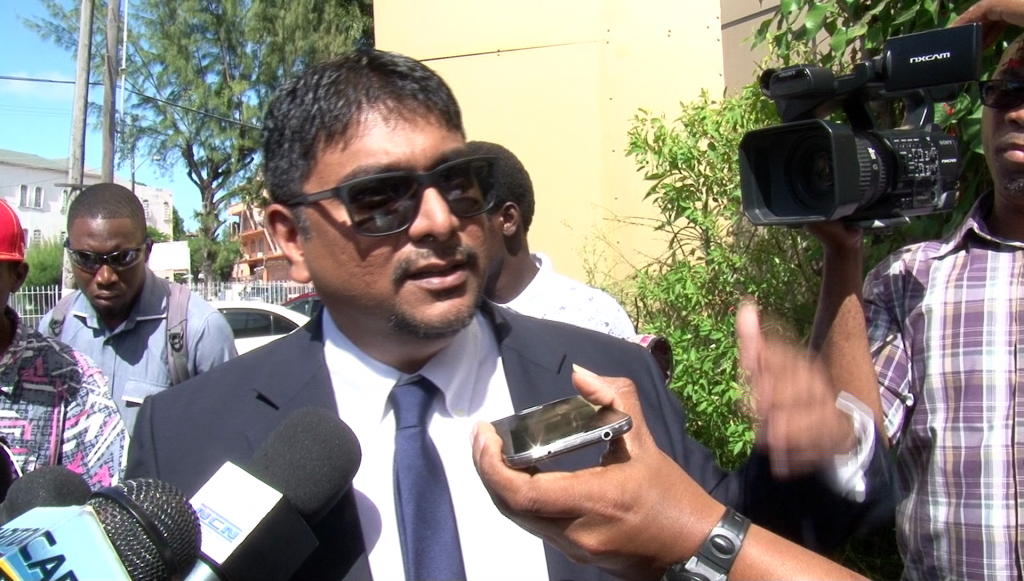33 or 34? CCJ begins hearing appeal on passage of No Confidence motion
The Caribbean Court of Justice (CCJ) on Thursday began hearing three consolidated appeals against a Court of Appeal decision which reversed the passage of the December 21 No Confidence motion.
The key question to be answered is what number of votes was needed to pass the No Confidence motion on the night of December 21.
The Government had contested the passage of the vote on an argument that 34 and not 33 members of the 65-seat legislated constituted a majority.
The Court of Appeal held in favour of the Government, reversing a High Court decision which upheld the passage of the vote.
Trinidad and Tobago’s Queens Counsel Douglas Mendes, opened the arguments, representing the arguments for the Opposition Leader Bharrat Jagdeo.

“I think that everyone understands that if this court (of five judges) were to make a decision then it is accepted that 3-2 is a majority, as it was accepted by the Court of Appeal (of three judges) that there was a majority decision of 2-1,” he stated.
Mendes continued along that line, saying that the Court of Appeal was wrong in deciding to define the majority that was needed.
The Court of Appeal, by way of a 2-1 majority, ruled that an absolute majority was needed, and after dividing the National Assembly by two and coming up with 32.5, it decided to round up that to 33, and so decided one more was needed to make 34 to form an absolute majority.
“The words absolute majority are to be found nowhere in the constitution, neither is the word simple majority,” said Mendes.
One of the judges on the court was interested in the arguments of why 33 seats were good enough to form the government but not good enough to remove it.
“If the majority of the court of appeal is right, do I understand that you need 34 votes to send the government home, but you only need 33 to govern?” asked Justice Jacob Wit.
“That is effectively what they are saying,” Mendes answered.

Mr Sanjeev Datadin, Attorney for Charrandass Persaud, who defected from his own government and voted in favour of the opposition on December 21, continued with the argument that the two judges of the Court of Appeal were wrong in determining that a majority in the House needed to be 34.
He argued that in simple terms, a majority meant majority, he argued and if there were 65 members of Parliament, 33 would be a majority.
“It becomes even more absurd if only three members of the bench sit, then you can only have a unanimous motion,” Justice Saunders retorted.
“Indeed,” Datadin responded.
Another of the key arguments was whether the vote of Charrandass Persaud was valid because he voted against his party list. It is claimed that he was duty bound to support his party and if he knew he was going to vote against the government he should have vacated his seat before the No Confidence motion.
Mendes argued that if that were the case then the government will always have a majority.
Justice Saunders commented that if that were the case, it would mean voting on any motion would be a charade.
Arguments in the case will continue on Friday.







